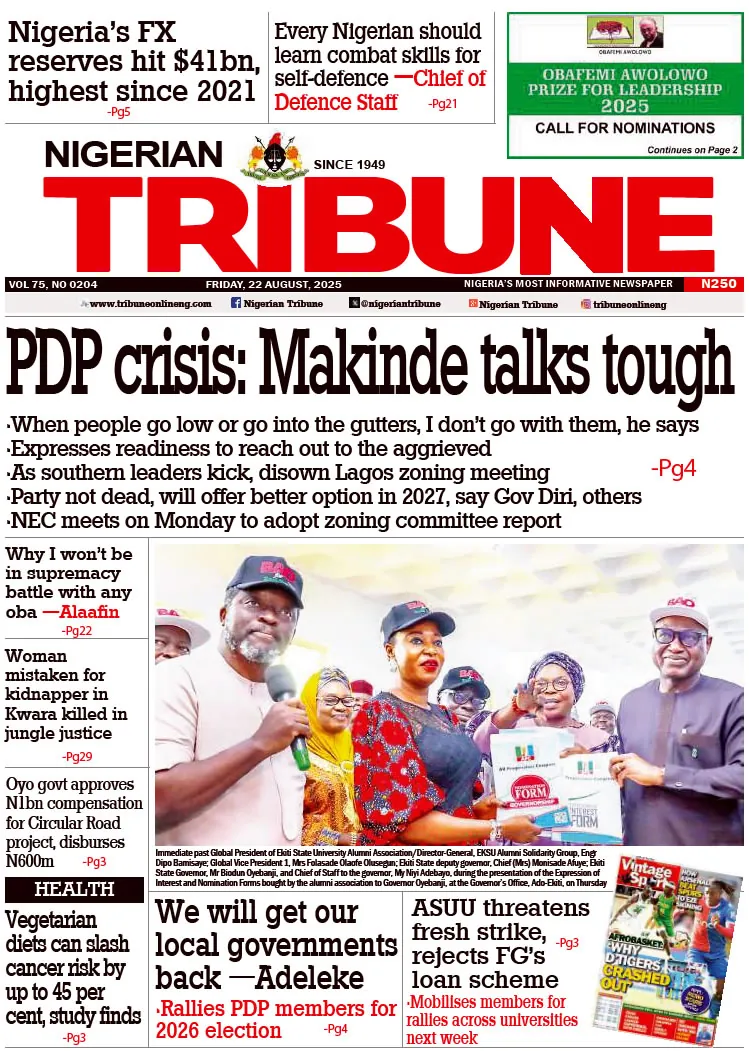The Joint Admissions and Matriculation Board (JAMB) has explained that the stringent measures introduced on underage admissions into tertiary institutions are intended to protect such candidates by ensuring they are ready for the exposure and responsibilities of university life.
Recall that following the approval of 16-year age limit by the Federal Government for admissions into universities and tertiary institutions in the country, the Minister of Education, Dr. Olatunji Alausa had directed JAMB to outline criteria and screening for the gifted candidates who are below the age of 16 to prove that they are actually exceptional to proceed to higher education.
Some stakeholders and educationists have criticized the Board for subjecting such young Nigerians to “unnecessary” screening processes after performing excellently well in the Unified Tertiary Matriculation (UTME).
Registrar of JAMB, Prof. Is-haq Oloyede, speaking in Abuja, provided more insight as to why the Board decided to introduce the stringent measures for admission of underage candidates. He warned that the Board would no longer tolerate the academic abuse of pushing psychologically and emotionally unprepared children into the rigours of university education.
He pointed out that the stringent measures put in place were not only about the age or intelligence but also consideration for the maturity and right frame of mind of underage candidates to navigate the rigours of tertiary education.
The Registrar disclosed that the Board was not unmindful of the clamour for unimpeded admission of exceptionally-brilliant candidates but pointed out that the Board owes it a duty to the nation to ensure that only the truly exceptional candidates are admitted.
While reaffirming the 16-year age threshold as mandated by the federal government, he stated some of the criteria that gifted candidates had to possess.
One of the first criteria he noted was that the said underage candidates seeking admission must score a minimum Unified Tertiary Examination (UTME) score of 320 out of 400, which is 80%; post-UTME score of at least 80%; minimum of 80% in a single sitting of West African Examination Council (WAEC) or National Examination Council (NECO), equivalent to 24 points out of 30.
He listed other hurdles that for science candidates, Mathematics must be among the top-scoring subjects, while for Arts candidates, English Language must be included.
Oloyede declared that the post-UTME is still required for underage applicants even in universities, where the general post-UTME process had been suspended, hence underage candidates would still be required to undergo a dedicated post-UTME screening, which would be collated along with other criteria by the Board for further processing.
The Board has inaugurated a 23-man panel of experts to screen about 599 underage candidates who scored the minimum benchmark of 320 points in the just concluded UTME as a key requirement for admission of underage into Nigerian universities.
The sub-committee mandated to screen underage candidates in the 2025 UTME) has also submitted its report.
In its report, the committee unveiled the criteria and mode of screening for the 599 shortlisted exceptional candidates slated to hold between 22nd -26th September, 2025, in three locations across the country.
ALSO READ: Ladoja to be crowned 44th Olubadan on Friday, September 26
The Chairman of the sub-committee, Professor Taoheed Adedoja, while presenting the report, stated that the candidates would be subjected to written tests followed by oral interview.
He pointed out that members had been mandated to assess candidates using the Affective Domain to determine their readiness for the academic, social and emotional demands of higher education.
WATCH TOP VIDEOS FROM NIGERIAN TRIBUNE TV
- Let’s Talk About SELF-AWARENESS
- Is Your Confidence Mistaken for Pride? Let’s talk about it
- Is Etiquette About Perfection…Or Just Not Being Rude?
- Top Psychologist Reveal 3 Signs You’re Struggling With Imposter Syndrome
- Do You Pick Up Work-Related Calls at Midnight or Never? Let’s Talk About Boundaries







